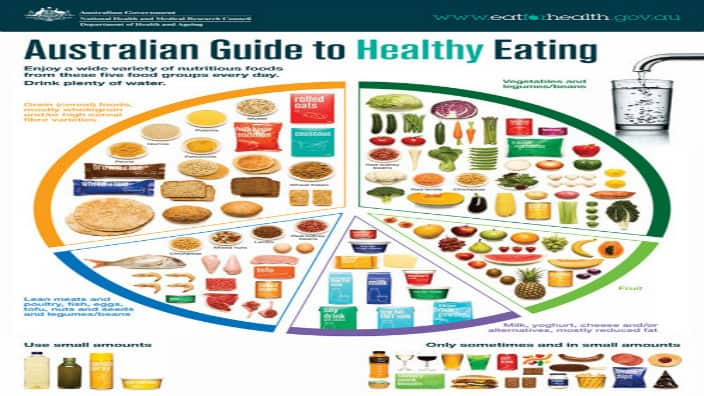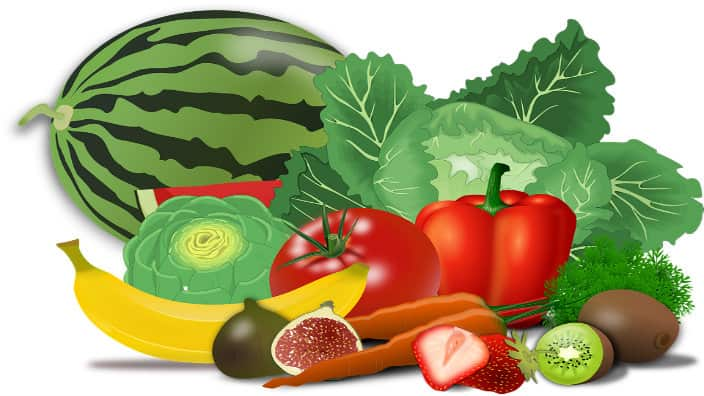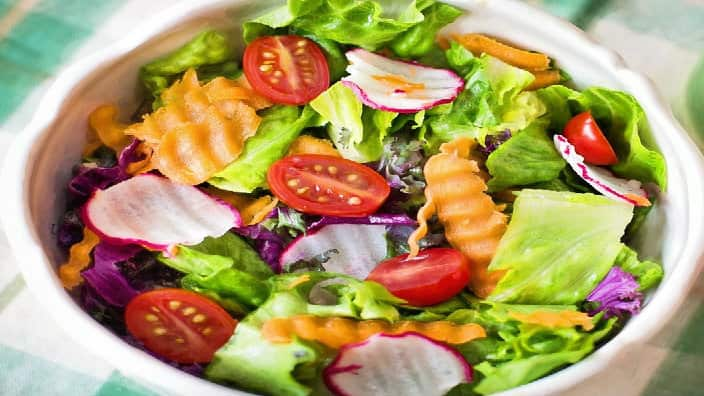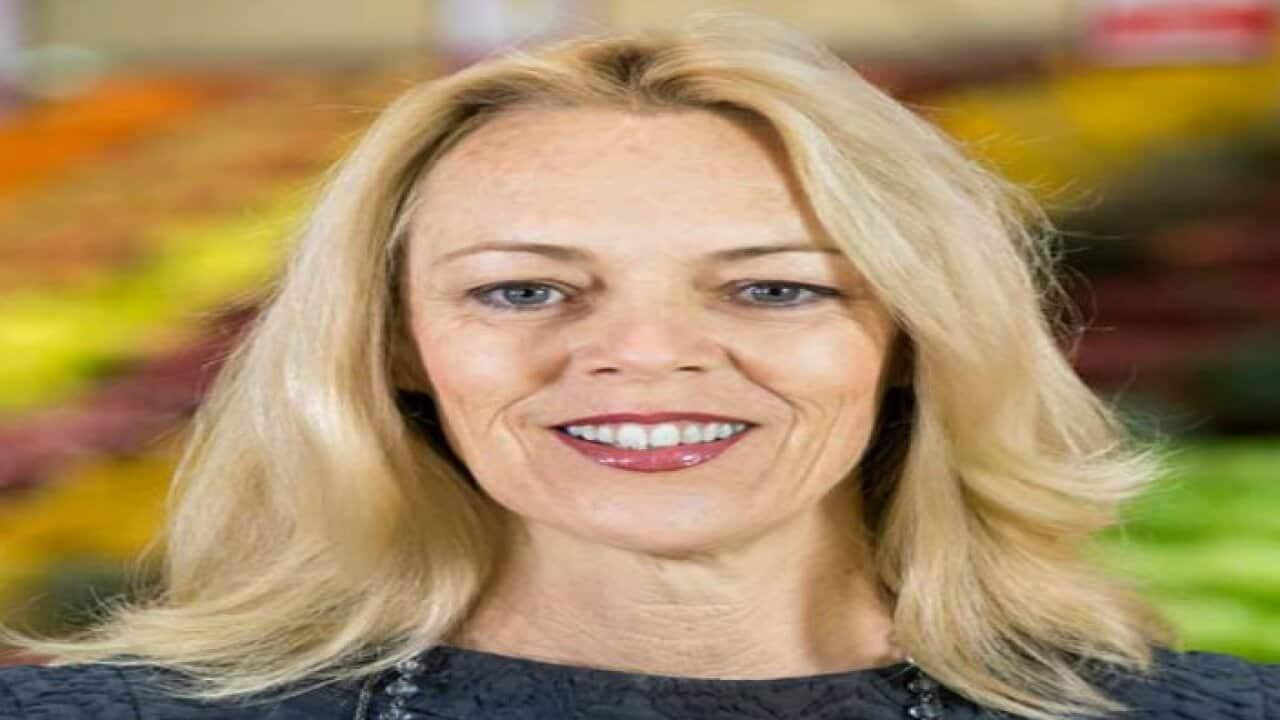Professor Clare Collins is a Senior Research Fellow at the School of Health Sciences dietician at University of Newcastle and has received 2012 Excellence in Research for Australia (ERA) award which focus on nutrition and dietetics research.
She told SBS Radio Hmong Program that it is the first time that the Dietician Association of Australia is setting up Smart Eating Week which will start from the 12-18 February 2018 to promote healthy eating habit and inform Australian to sort out the truth about health myth as they were bombarded with all kind of health information in this digital age.
"We know that in Australia our eating habits is not that great, due to about a third of food that we consume are literally discretionary choice or junk food." Said Prof Clare Collins, Accredited Practicing Dietitian and spokesperson for the Dietitians Association of Australia.

According to Professor Collins, some people are more genetically at risk for some medical conditions especially type I or type II diabetes. Furthermore, there is no fund to make genetic testing available for everyone, so they can show the test result to their dieticians which type of food they should eat. There are currently some genetic testing progresses made for some diseases but not in food.
Most of the health services including dietetic services are covered by Medicare. For those who have chronic diseases like diabetes or heart diseases, Professor Collins recommended that they should check with the medical centers, hospitals or community health centers that they are using, if those centers can help managing care plans for them to meet a dietician. Though they may not even need a referral to see a dietician and just drop in any dietician clinic if they have private health insurance, people still don't know where and how to access this services.
Professor Collins mentioned that people can google search the Dietician Association of Australia (DAA) website https://daa.asn.au/smart-eating-for-you/smart-eating-week/ and enter their postcode and they will be able to locate the nearest private dietetic clinic or they can talk to a dietician during the Smart Eating Week 12-18 Feb, if they use the social media like Instagram or Twitter hashtag #smarteatingweek. Moreover, Professor Collins said that her team at the University of Newcastle also created a healthy eating quiz http://www.healthyeatingquiz.com.au/ which endorses by the DAA. It is a self assessment online survey that take 5 minutes to complete and it will give a very brief personalized advice according to the survey you do.
"As a food group, vegetables are super food. It is true that there are particular vegetables or fruits that are specially high in one nutrient, but having that occasionally doesn't really improve your health compare to the health benefits and the help that you will get in control of your weight if you really increase your vegetables. So one simple guide that we say that is, half of your plate or lunch box should be vegetable. Australian should eat two and a half of cooked vegetable or up to five cups of salad per day. Most Australians should double or triple the amount they are eating at the moment." Said Professor Clare Collins.

Yes, that may be the best advices you may get from dieticians or nutritionists but fruits and vegetables are not so palatable for some people especially men and kids, but there are ways to sort this out and Professor Clare Collins explains why and how to.
"There are many things here, one of the thing is that we give up too soon in trying to encourage our families to eat more vegetables, uh I think some time men can complain too much and say I don't like brussel sprout or whatever vegetable is. The other thing is that we don't have enough recognition that some people or one in four people or 25% are super tasters which are people who have more taste bud on the tip of their tongues. So they will taste the gluco simulate chemical compound of brussel sprout or broccoli as bitter while other non tasters see as normal, but you can overcome super tasters effects by repeated exposure." " The way you cook vegetables can actually nutralised the impact of being sensitive to bitter tasting compound, so what that means in plain language is that using herbs and spices, cooking vegetable for less time rather than more time. Using things like pepper or olive oil and vinegar really help you to appreciate rich flavor of herbs and spices along with vegetables and then you don't notices the yucky gluco simulate taste underneath." Said Professor Clare Collins.

During this Smart Eating Week Professor Clare Collins would like to encourage people to groceries shopping and buy different type of vegetables and then try to experiment until you find the best way to cook to the best taste, because there are plenty of good food that are available for us nowadays.
"We know that eating more vegetables, bring more colors on your plates, is the way to improve your health and improve your weight and I do think that sugar tax would definitely helpful. We need more supports for healthy eating from every level of governments and I do think that sugar tax would definitely helpful." Said Professor Clare Collins. Australian to stick to the Australian guide to healthy eating guidelines which include grains, seeds, legumes, nuts, dairy products, lean meat or vegetarian products that people can afford. By eating more variety of these vegetables and less of processed foods is the best way to help you, your family and your communities to be healthy. And we also know that when you do groceries shopping it helps you save money and you will end up spend less on take away food and that is absolutely a recipe to improve your health." Said Professor Clare Collins. #
Listen to more news in Hmong and in English from the following websites:
Listen to Hmong weekly program on Thursday at 6 pm AEST (Australian Eastern Standard Time) or on Sunday at 11am AEST at www.sbs.com.au/hmong
Or you can download podcasts both in Hmong and in English or listen to more news at: www.sbs.com.au/podcasts/yourlanguage/hmong
You can download SBS Radio app from Google Play and App Store for your smart phone and listen to Thursday 6pm AEST or Sunday 11 am AEST program on your phone at http://www.sbs.com.au/radio/article/2015/03/07/download-sbs-radios-free-mobile-app
Or if you want to check the frequent questions asked about SBS Radio app, please check http://www.sbs.com.au/radio/sbs-radio-app
Follow SBS Hmong at SBS Hmong Facebook page, click like us, share SBS Hmong news to your friends and comment about stories or our program at: www.facebook.com/sbshmong
Or if you would like to share your story with SBS Radio Hmong Program, please contact +61 (3) 9949 2259 or send SMS to+ 61 (0) 42999 6263.
You can also listen to SBS Radio Hmong Program through radio frequencies at http://www.sbs.com.au/radio/listen-amfm-radio
HOBART = 105.7FM
MELBOURNE = 93.1FM / 1224 AM
CANBERRA = 105.5FM / 1440 AM
SYDNEY = 97.7FM / 1107 AM
WOLLONGONG = 1413AM
BRISBANE = 93.3 FM
CAIRNS = 90.5 FM
DARWIN = 100.9FM
PERTH = 96.9FM
SA = 106.3 FM
Listen to us on digital TV on channel 38.

